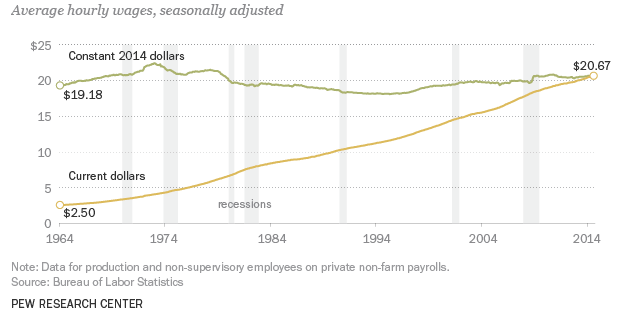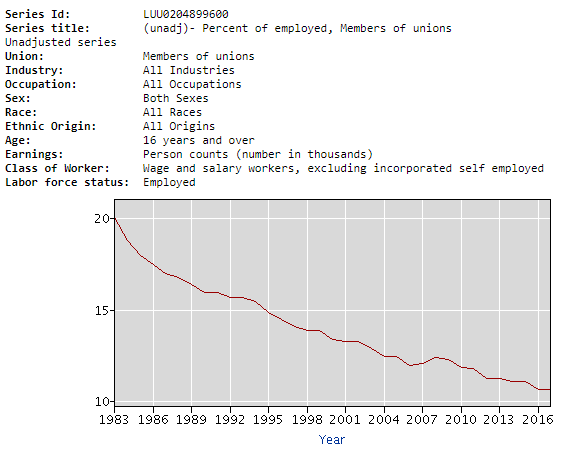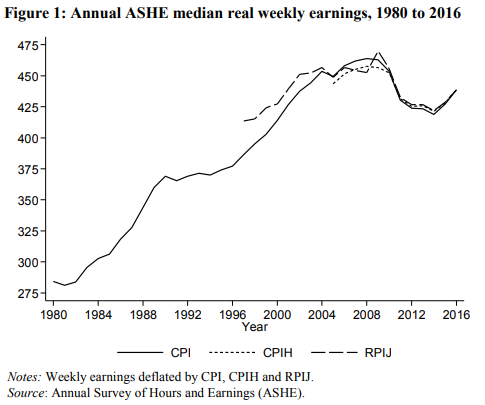In the United States, wages in real terms have seen very little change over approximately five decades:
The reasons for this are many and varied.
Over approximately the same time period, union membership has fallen dramatically. BLS data since 1983 shows the following chart
(source: data roundup via https://www.bls.gov/news.release/union2.nr0.htm with the same chart in a more accessible article at https://www.bloomberg.com/news/articles/2018-01-19/union-membership-rate-in-u-s-held-at-record-low-of-10-7-in-17 ).
The reasons for this too are many and varied.
I think the causal relationship between the two is weak, but I'm wondering if there has been any research on whether or not there is a relationship, and to what degree.
Repeated, in question form: What is the relationship, if any, between declining union membership and real wage stagnation? Thank you.
Edit: UK data.
The UK has a report on union membership: https://www.gov.uk/government/statistics/trade-union-statistics-2016 . One table lists "Trade union membership, UK, 1892 to 2015-16" in absolute terms; the series counting percent of employees only starts in 1989. But it shows that absolute membership peaked in 1979 and has been declining since.
In contrast with the United States, ever since the (absolute) union membership peak in 1979, real wages have increased in the UK (actually shown is since 1980), although they did take a dip after 2008.
(source: "Real Wages and Living Standards in the UK" )



